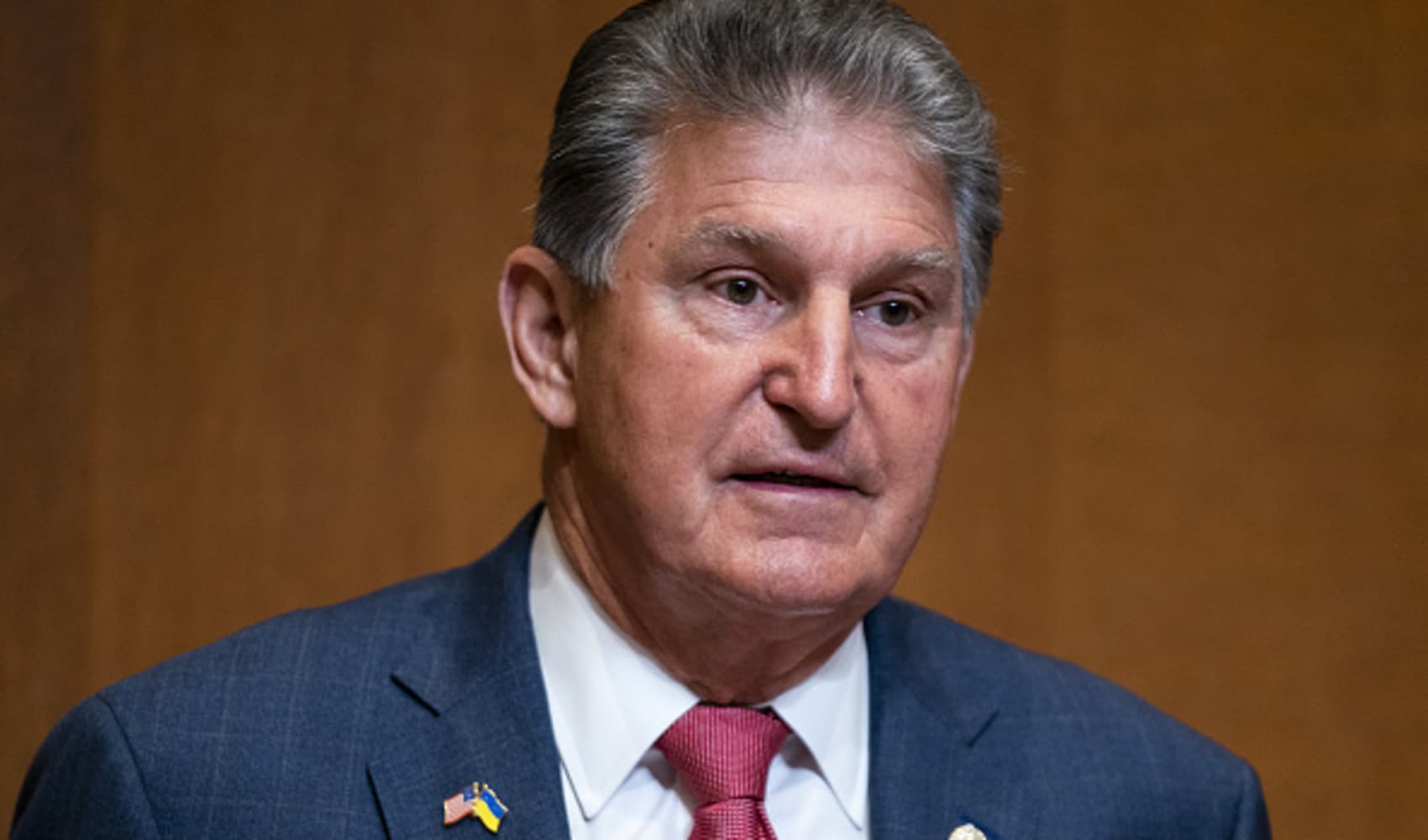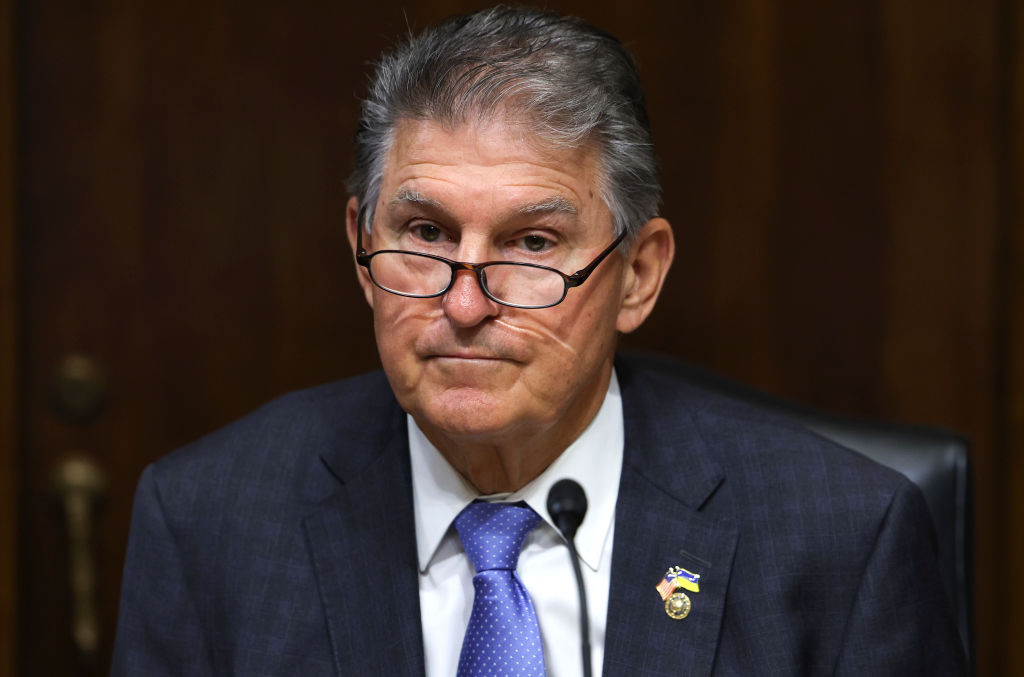Joe Manchin's decision not to seek reelection virtually ensures that the Democratic Party will lose his Senate seat next year in deep-red West Virginia, making the party's steep path to retaining its razor-thin Senate majority even more difficult.
Some Democratic officials are also concerned that Manchin's announcement frees him to pursue a third-party presidential bid that could ultimately undermine President Joe Biden's reelection. The 76-year-old Manchin has raised the possibility of a presidential bid in the past, and he made direct reference to national ambitions in the retirement video he posted on social media Thursday.
“What I will be doing is traveling the country and speaking out to see if there is an interest in creating a movement to mobilize the middle and bring Americans together,” Manchin said.
Manchin's sudden announcement injects a new layer of uncertainty for Democratic leaders already anxious about the party's prospects in 2024. Biden is seeking a second term despite persistent concerns about his age and economic leadership from voters in both major parties. At the same time, Democrats are clinging to a 51-49 Senate majority having narrowly lost their House majority last fall.
Get New England news, weather forecasts and entertainment stories to your inbox. Sign up for NECN newsletters.
Just an hour after Manchin's announcement, a Boston-based group filed paperwork with the Federal Election Commission to form a draft committee designed to encourage Manchin and Utah Sen. Mitt Romney to launch a third-party presidential bid. A person with direct knowledge of the group's activities said the committee, which is calling itself “America Back on Track," would launch publicly next week with an initial budget of $1 million. The person spoke on the condition of anonymity to discuss internal planning.
The new draft effort was specifically created, the person said, to enable Manchin and Romney to seek the presidential nomination at No Labels' national convention next March in Texas. Romney also declined to run for reelection to the Senate next year.
A Manchin spokesperson declined to comment on the group, while Romney distanced himself from it, despite the involvement of Massachusetts-based attorney Dan Winslow, who served as chief legal counsel to Romney when he served as the state's governor.
“Sen. Romney was not aware of this effort and he is not considering running for president on any ticket,” Romney chief of staff Liz Johnson said.
Still, the fact that Manchin is actively being encouraged to seek a presidential run sparked new anxiety among Democratic operatives who were already concerned about the impact of third parties in 2024. Progressive activist Cornel West and Robert Kennedy Jr., an environmental lawyer and leading vaccine skeptic, have already launched independent White House runs.
Yet many Democratic leaders are taking No Labels more seriously. Backed by anonymous donations of tens of millions of dollars, the centrist group has already secured presidential ballot access in a dozen states with many more expected over the coming months. Its officials say it will decide early next year whether to launch a presidential ticket.
“If Joe Manchin runs on the No Labels ticket, he would be responsible for sending Donald Trump back to the White House,” MoveOn Political Action executive director Rahna Epting said shortly after Manchin’s announcement. “Joe Manchin should set the record straight on whose side he is on and reject any overtures from No Labels’ dangerous ploy.”
Recommended:
Over the summer, two major Democratic-allied groups, MoveOn and centrist Third Way, hosted Capitol Hill briefings with senior congressional staffers warning of No Labels' presidential ambitions.
“I am sad that he’s not running for the Senate, because we’re going to lose that seat, obviously,” said Matt Bennett, co-founder of Third Way, on Thursday. But Bennett said he was less worried about Manchin running for president on the No Labels banner.
“He wants to be part of the conversation so he’s not going to close the door on this (presidential run),” Bennett said. “But I really don’t see him doing this.”
Manchin has long been friendly with No Labels, which has already begun holding private conversations with potential presidential nominees, Manchin among them. Over the summer, the West Virginia senator spoke at a No Labels event in New Hampshire, which traditionally hosts the nation's opening presidential primary.
No Labels released a statement describing Manchin as “a tireless voice for America’s commonsense majority and a longtime ally of the No Labels movement.”
“The Senate will lose a great leader when he leaves, but we commend Senator Manchin for stepping up to lead a long overdue national conversation about solving America’s biggest challenges, including inflation, an insecure border, out-of-control debt and growing threats from abroad,” No Labels said.
Officials with the group insist it would put forward a candidate only as an insurance policy should Biden and Trump secure their party’s presidential nominations — and if it is clear that the No Labels' candidates would not unintentionally tip the election in Trump's favor.
Meanwhile, Democrats acknowledge that their path to retaining the Senate majority will now be much more difficult.
The party in 2024 is defending Democratic-held seats in West Virginia, Montana and Ohio — all states that Trump carried handily in 2020. Democratic incumbents are also on the ballot in swing states Michigan, Nevada, Pennsylvania and Wisconsin. And in another swing state, Arizona, Democrats are waiting to see if independent Sen. Kyrsten Sinema, who receives her committee assignments from Democrats, will launch a third-party reelection bid.
With Democrats fearing that West Virginia is all but lost, they must now win every other Democratic-held seat in the nation to have a chance at holding the Senate majority in 2024. They have very few pickup opportunities — their best being Republican-held seats in Texas and Florida, both states Trump won twice.
David Bergstein, a spokesman for the Senate Democrats campaign arm, insisted that his party still has “multiple pathways to protect and strengthen our Senate majority.”
“In addition to defending our battle-tested incumbents, we’ve already expanded the battleground map to Texas and Florida, where formidable Democratic candidates are out-raising unpopular Republican incumbents and the DSCC is making investments to lay the groundwork for our campaigns’ victories,” he said.
Manchin was able to hold a Senate seat since 2012 thanks to a political brand decades in the making that helped him overcome West Virginia's strong anti-Democratic bias. But in a state Trump carried by nearly 40 points in 2020, Manchin was quietly considered a significant underdog in a prospective reelection matchup against hugely popular Republican Gov. Jim Justice.
Meanwhile, the White House issued a statement praising Manchin's dedication to the people of West Virginia and his accomplishments in Washington. Biden said the Manchin family "should feel proud of the Senator’s service to West Virginia and to our country.
“I look forward to continuing our work together to get things done for the American people," Biden said.
When asked about a prospective Manchin presidential run, Biden's campaign declined to comment.
____
Associated Press writer Will Weissert in Washington contributed to this report.



